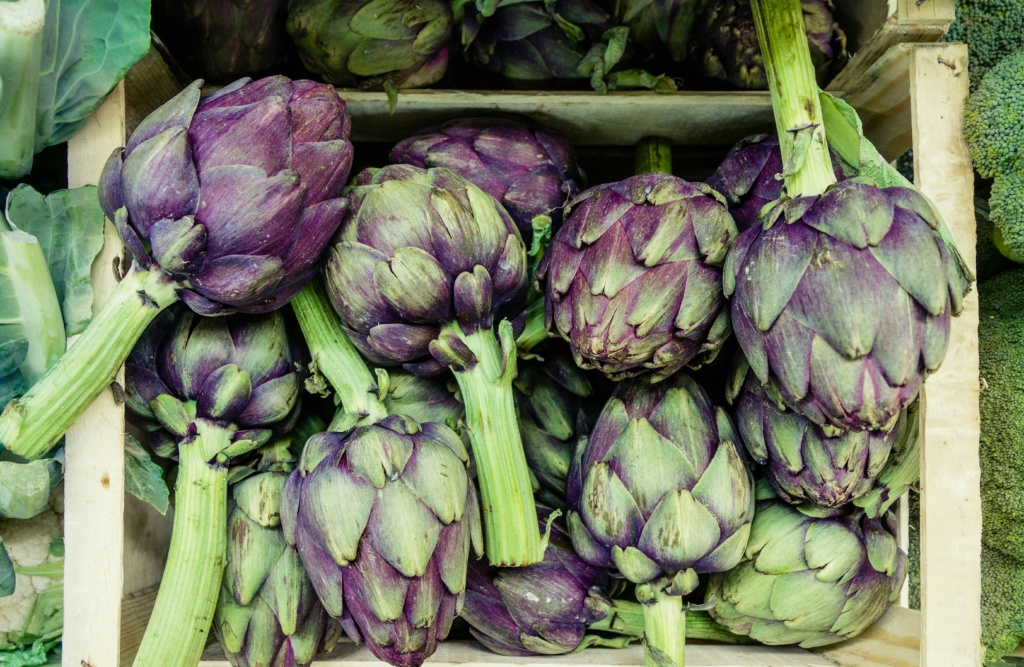Understanding Fertility and Miscarriages

This post outlines lifestyle factors and foods that increase fertility for anyone who has struggled with getting pregnant, infertility, or miscarriages.
Infertility and Miscarriages
Most who follow me know that I have been blessed with 2 beautiful children, and I thank God every day that I was chosen to be their mama. What some of you may not know is that I have also miscarried. In between my two earthly babies, I lost a baby nearly 12 weeks pregnant. As anyone who has experienced this great loss can tell you, it was excruciating… both physically and emotionally.
I would not wish this suffering on anyone. While I can rationalize that I may have experienced this awful heartache so that I can truly relate to and support my clients, I still experienced so many emotions. Today, I wanted to provide some insight related to the reason behind miscarriages and discuss how to support women’s minds and bodies to promote and increase fertility.
As any online search will show you, there are many theories behind why miscarriages happen, even though doctors don’t know for sure. Chronic stress, deficiency, and medical conditions, such as thyroid disease, lupus, or other “autoimmune disorders,” are frequently presumed to be the cause of miscarriages.
While underlying “disease” or labels for symptoms or conditions can certainly impact the chances of conceiving and carrying to term, I’m happy to share that making some changes to reduce viral and toxic load (which ding ding ding – can eventually minimize or reverse these symptoms or conditions) can strongly support your reproductive and endocrine system.
It’s no secret that dietary and lifestyle choices impact reproductive health. This includes obvious poor habits such as smoking or drinking excessive alcohol, but also exposure to repeated stressors and exposure to environmental toxins such as pesticides, herbicides, and plastics.

What We Now Know About Fertility
Anthony William from Medical Medium has shared that, quite commonly, women’s reproductive batteries can run low. He describes that, not unlike a phone or car battery, our reproductive batteries can be low as a result of issues such as previous use of birth control, spending our younger years doing all we could do to AVOID pregnancy, and/or extreme stress in our lives. The extreme stress was the case for me when I experienced my miscarriage.
If the human body came with an indicator light, most women with infertility issues would see a low-power warning. That’s because a woman’s reproductive system is like a battery: the proper care, forethought, and attention are required to charge it up and get it working at full strength. If you’re a woman struggling with infertility, there’s a good chance that your reproductive system needs a charge. -AW
Foods that Increase Fertility & Heal
If you’re looking for ways to boost your battery, start with healing and fertility-enhancing foods!
Fruit
First and foremost, the reproductive system runs on glucose – and the best, most bioavailable source of glucose is fruit (and coconut water and honey). -AW
It’s time for fruit to become your new best friend (if it isn’t already!). This is a good time to ignore the “we need a zillion grams of protein” claims and give your body what it needs—natural sugar in the form of fructose and glucose from whole food sources. (Added bonus – breast milk is composed of glucose, too, so you’re setting the stage for success post-birth as well. For additional post-birth support, check out my post on foods to help with breastfeeding.)
Wild blueberries are a great fruit to start with. Other fruits that boost fertility include oranges, bananas, grapes, mangoes, melons, raspberries, cucumbers, cherries, and limes.
Many of these fruits are also great for vitamin C intake, promoting immune and reproductive health and helps maintain a healthy weight.
Avocados are especially helpful because they are high in omega-3 fatty acids, which are healthy fats that promote female and male fertility. To supplement omega-3, we recommend Vimergy Vegan EPA DHA. If you have been eating low-fat, this may be the time to add a little bit of fat.
Avocados are all about nurturing. They are the mother fruit. Why? They’re the closest food on the planet to breast milk. This means that in addition to the ways avocados help our bodies, they fill us spiritually with nurturing, motherly love. When we need to offer care to others—for example, when helping a friend or loved one through tough times—eating avocados helps us pass along this maternal energy.
And when we’re the ones who need love, either to keep us going as we tend to those around us or because of upheavals in our own lives, avocado is the ultimate comfort food. Bring avocado into your life as a teacher of unconditional love toward yourself and others, and watch your capacity for compassion grow and flourish. -AW

Veggies
Other notable foods for your fertility diet include leafy greens and veggies such as asparagus, spinach, artichokes, kale, celery, butter leaf lettuce, and potatoes.
Herbs & Other Foods
Food and herbs for fertility include garlic, nettle leaf, raspberry leaf, coconut, sprouts, micro-greens, red clover, and raw honey. Be sure to check with a qualified practitioner once you have a confirmed pregnancy test, as many herbs and supplements are not safe during pregnancy.
Lentils are great for boosting fertility, too, because they have high levels of folate, which is important for conception and a healthy pregnancy. (Here’s a perfect lentil soup recipe to get you started.) It’s important to note that folate is NOT the same as folic acid. Folate occurs naturally in foods (vitamin B9), while folic acid is synthetic and should be avoided.
Prenatal Vitamins and Supplements
As you can see, foods are a huge part of the equation, but for an added fertility boost, what about multivitamins/prenatal vitamins and other supplements and herbs? Pregnancy is a time to be mindful, tune in, and listen to your body. It’s not a time for one-size-fits-all protocols or plans. Please speak to your OBGYN and/or midwife, and consider consulting with us if you have questions about supporting your body during pregnancy or postpartum.
What Foods to Avoid for Fertility?
Anthony shares that avoiding anti-fertility foods is also an excellent idea. These foods/ingredients include:
- Dairy products
- Corn
- Wheat
- Canola oil
- Aspartame
- MSG
- Soy
Lifestyle Changes to Increase Fertility
In addition to eating more foods that increase fertility and avoiding those that don’t, make sure to take time for yourself and practice good self-care habits like meditation and limiting stress.
Do Your Best to Limit Stress.
We all deal with stress regularly, and some of it is even healthy!
Excess stress, however, can have a profound impact on our ability to conceive, among other dangers. When our bodies produce excess adrenaline during “fight or flight” moments (perhaps related to work, family, finances, etc.), particularly when this occurs on repeat, it can interfere with our reproductive system’s ability to perform.
That’s because your body wants to protect you. If you undergo emotional upheaval or another form of extreme stress, your body’s instinct is to prevent a baby from putting more stress on your body – so the excess adrenaline that is intended for fight or flight acts as an anti-fertility steroid. -AW
In addition to monitoring your stress levels, to help combat adrenal fatigue, it is best to eat every 1-2 hours. This prevents your adrenals from having to work overtime to fill in for drops in blood glucose levels. The foods mentioned above will help to balance your body’s ability to deal with stress. Here are 10 snacks for adrenal health from Anthony’s website.

Try Meditation
A woman’s reproductive system has a soul of its own. This means that when you’re trying to cultivate its fertility, it’s essential to go beyond the physical steps above. There’s a very real element of spiritual nurturing involved. Just as partners try to get in sync with each other when trying to conceive, it’s important to get in touch, soul to soul, with your own reproductive system. -AW
In Life-Changing Foods, Anthony shares that simply getting in touch with your reproductive system and honoring it during a “walking meditation” can be very helpful. He also discusses breathing in white light to “amplify the recharging of your womb.”
Pregnancy & Fertility Support
Experiencing a miscarriage is devastating; I’m not going to sugarcoat it. However, as Anthony has done for so many, I am dedicated to giving hope to women worldwide that conception is possible. Please reach out if I can support you with a healing protocol.

